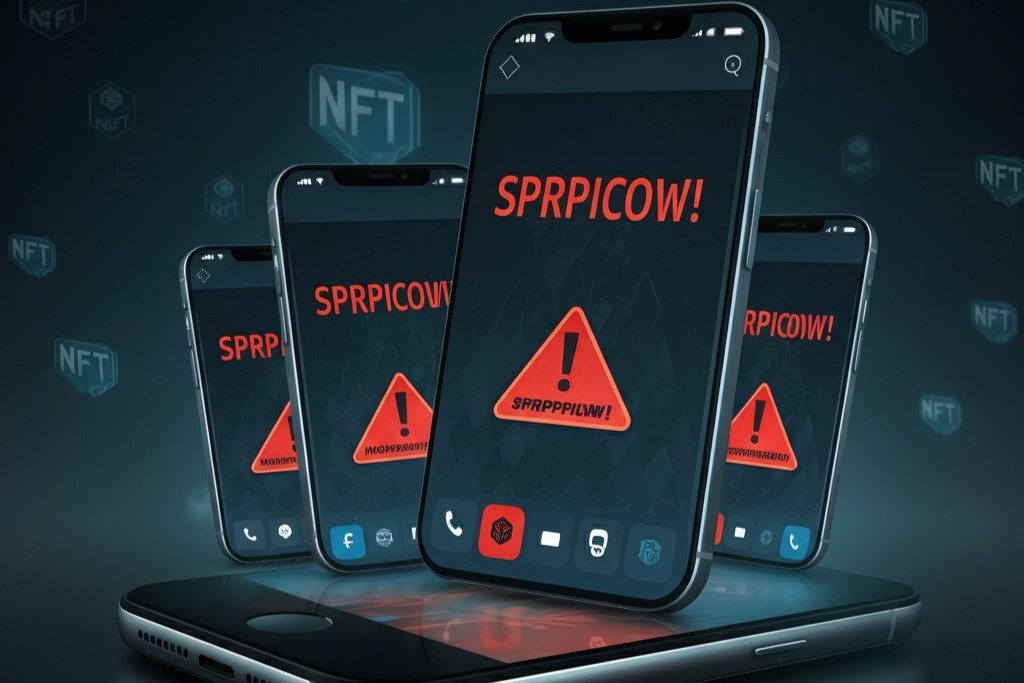Now Reading: How These Viral Earning Apps Are Tricking Users in 2025
-
01
How These Viral Earning Apps Are Tricking Users in 2025

How These Viral Earning Apps Are Tricking Users in 2025
The promise of making quick cash through mobile apps is more alluring than ever. With the rise of viral earning apps, users are flocking to what seems like an easy way to earn money in 2025. Whether through completing tasks, watching videos, or engaging in social media challenges, these apps sell the dream of effortless income. But is that promise too good to be true?
Unfortunately, many of these apps are laced with deceptive practices, leaving users with nothing but frustration—or worse, financial losses. This blog dives deep into how viral earning apps are tricking users in 2025, the red flags to watch for, and how to protect yourself.
What Are Viral Earning Apps and Why Are They So Popular?
The Trend of Quick Cash Apps
Who wouldn’t want to earn money directly from their phone? Viral earning apps market themselves as the ultimate side hustle. They claim users can earn cash for completing simple tasks like taking surveys, playing games, or referring friends. These apps often feature sleek designs, flashy in-app rewards, and promises of fast payouts, building an enticing image of convenience.
What’s driving their popularity? For one, Millennials and Gen Z are particularly drawn to gig-based income streams. Throw in the social media amplification of success stories and earnings screenshots, and it’s easy to see why these apps quickly gain traction.
Why They Go Viral Fast
Viral earning apps are designed to spread like wildfire. Many offer referral bonuses, where users make money simply by inviting others to use the app. Couple this with aggressive social media campaigns and testimonials from influencers, and these apps become overnight stars.
However, this rapid virality often blinds users to underlying issues. The tech-savvy nature of many users ironically works against them as they focus on the app’s user experience instead of checking for legitimacy.
Top 5 Viral Earning Apps With Scam Allegations
Not every viral app is a scam, but a few high-profile cases have raised questions about how these platforms operate. Here are five popular apps in 2025 that have been under scrutiny.
1. SnapGold
What It Claims: SnapGold promises instant cash for completing surveys and referring friends.
Allegations: Users complain about vanishing balances and limits on withdrawals, making it difficult to actually claim earnings. Several verified reviews on the Play Store flagged SnapGold as a potential scam.
2. CoinCraft
What It Claims: Marketed as a cryptocurrency reward app, CoinCraft hooks users with high-value payouts in digital currency.
Allegations: CoinCraft has been linked to Ponzi-style schemes, where users fund the platform through tokens they can’t redeem.
3. CashBird
What It Claims: Known for fun mini-games, CashBird promises users payouts via PayPal.
Allegations: Users report delays in withdrawal requests for months, and some claim they never received their earnings.
4. GoldLine
What It Claims: GoldLine entices investors with promises of doubling their money through smart contracts.
Allegations: The app frequently crashes, and users have reported sudden account suspensions when attempting to withdraw funds.
5. MetaFarm Pro
What It Claims: MetaFarm Pro gamifies earning by having users grow “virtual farms” that pay real cash.
Allegations: The app allegedly inflates earnings on the dashboard, creating an illusion of higher rewards. Several users noted that once they tried to cash out, the app stopped functioning entirely.
Common Red Flags in Viral Earning Apps
Spotting a scam is often difficult, but most fake earning apps share similar traits. Here are some common red flags to be aware of.
Fake Payout Screenshots
Scammers rely on fabricated screenshots to lure unsuspecting users. While these images look legitimate, they’re often heavily doctored or created by promoting fake payouts.
Delayed or Missing Withdrawals
Legitimate apps should process withdrawals promptly. Pay attention to complaints about excessive delays or repeatedly failed payments; these are clear signs of trouble.
Sudden App Closures & Updates
Many scam apps abruptly shut down or vanish altogether once they’ve gained enough funds. Alternatively, they may roll out suspicious updates that limit user access to earnings.
Case Study: How Users Lost Money to a Popular Viral Earning App
To understand how these scams work, let’s examine an actual app that left thousands of users high and dry.
Reviews from Users
For our case study, let’s focus on SnapGold, the app highlighted earlier. Here’s what users are saying:
- “I was so excited when I reached my first payout goal, but two weeks later, I still haven’t received a dime.”
- “Customer service is nonexistent, and they ignore my emails. Total scam!”
What the App Promised vs Delivered
SnapGold initially gained traction by claiming fast and secure payouts. However, users found that no matter how many tasks were completed, payouts either didn’t materialize or were significantly delayed. While the app thrived in downloads and ads, users started leaving en masse once its true nature was exposed.
What to Do If You’re a Victim of a Viral App Scam
If you’ve fallen prey to a fake app, don’t panic. There are ways to take action and avoid further losses.
Where to Report
If you suspect an app is fraudulent, report it immediately.
- Google Play Store/Apple App Store: File a complaint and leave a detailed review.
- Consumer Protection Authorities: Report scams to your local consumer protection agency.
Precautionary Tips for New Users
- Read Reviews: Check what others are saying about the app on multiple platforms.
- Verify Legitimacy: Search for the app’s developer and look for credible business affiliations.
- Avoid Large Investments: Never put more money into an app than you’re willing to lose.
Final Thoughts: Are Viral Earning Apps in 2025 Just Digital Traps?
Viral earning apps may seem like an easy and exciting way to make money, but many fall short of their promises. With scams lurking in shiny, user-friendly platforms, it’s crucial to approach these apps with caution.
While some apps are genuine, many capitalize on user trust and naivety, leaving victims frustrated and out of pocket. Educating yourself and staying vigilant is your best defense.
Remember, if an app seems too good to be true, it probably is. When in doubt, research thoroughly and spread the word to protect others.























